Search Results
Showing results 541 to 560 of 740
Magnus Glider
Source Institutions
A design challenge that takes paper airplanes into an entirely different direction: a magnus glider uses cups and and rubber bands to create a glider that uses the same forces that a curveball (from b

Molecules in Motion
Source Institutions
"Molecules in Motion" explores how materials behave and change in a vacuum.

How Our Environment Affects Color Vision
Source Institutions
In this lab (Activity #1 on page), learners explore how we see color.

Zoom: Travel to a Star and Back to Earth
Source Institutions
This is an online activity about what would happen if we could travel at or near the speed of light.

Unleakable Bag
Source Institutions
In this activity, learners explore the flexibility of polymer chains by pushing sharpened pencils through a Ziploc bag.
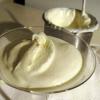
Instant Ice Cream with a Dry Ice Bath
Source Institutions
In this chemistry meets cooking activity, learners make carbonated, vanilla ice cream using dry ice and denatured ethanol, which are both inexpensive and accessible.

Coral Snapshots: Biodiversity in Marine Protected Areas
Source Institutions
In this data activity, learners analyze data from coral reef snapshots taken by scientists at the Virginia Institute of Marine Science.

Paper Cup Stool
Source Institutions
In this activity, learners will explore how and why weight distribution works.
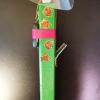
Personal Fan
Source Institutions
Cool off in the heat with this project! Learners use simple materials to build a fan that runs on a motor.
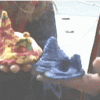
To Topo Two
Source Institutions
In this activity, two groups of learners create two separate landform models out of clay (mountains and valleys).

Auditory Acuity
Source Institutions
This activity (8th activity on the page) tests learners' ability to identify things using only the sense of hearing.
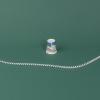
Anti-Sound Spring
Source Institutions
What happens when two wave pulses meet in the middle? Send waves down a spring to watch them travel and interact.
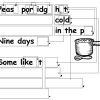
You Can Say That Again!: Text Compression
Source Institutions
This activity helps students learn how computers "compress" text by identifying repeating patterns of letters, words, and phrases.
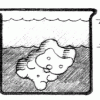
Gummy Growth
Source Institutions
In this activity related to Archimedes' Principle, learners use water displacement to compare the volume of an expanded gummy bear with a gummy bear in its original condition.

Why is the Sky Blue?
Source Institutions
In this activity, learners use a flashlight, a glass of water, and some milk to examine why the sky is blue and sunsets are red.

Standing in the Shadow of Earth
Source Institutions
This fun and simple hands-on astronomy activity demonstrates the shadow of the Earth as it rises as a dark blue shadow above the eastern horizon.
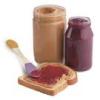
Peanut Butter and Jelly Robot
Source Institutions
This is an activity about robotics programming. Learners will discover how precise programmers have to be as they instruct a friend to make a peanut butter and jelly sandwich.
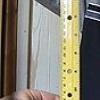
How Fast Are You?
Source Institutions
This activity is designed to let learners measure their reaction time or response time to something they see.

Where Was That?
Source Institutions
In this activity (9th activity on the page), learners work in pairs to see how their perception of touch differs from reality.
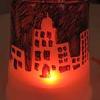
Night Lights
Source Institutions
In this activity, learners create night lights using a plastic cup, programmable PICO Cricket, tri-color LED, and sensor.
